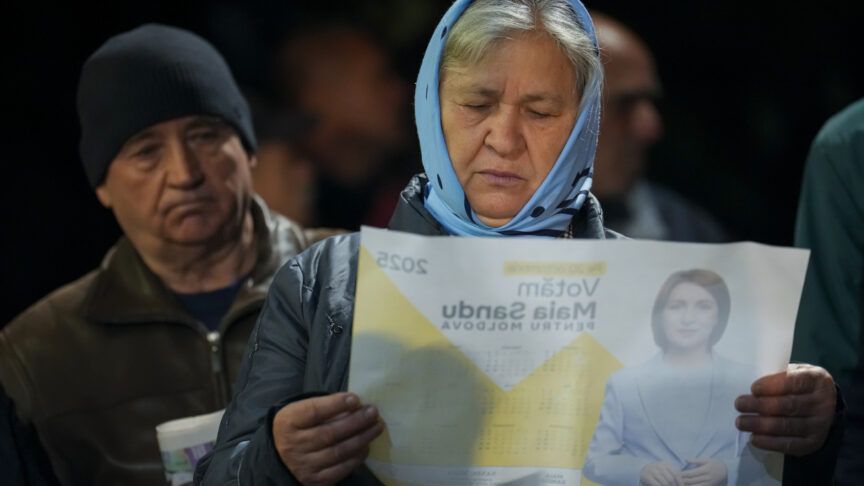Kazakhstan and the Eurasian Economic Union: The view from Astana
The EEU is President Nursultan Nazarbaev’s pet project, but membership carries risks for Kazakhstan.
As the Eurasian Economic Union comes into force in January 2015, ECFR has asked expert analysts from the current member states about their hopes and fears for their country’s future as part of this Union. Last week, we featured Belarus and Armenia, today we focus in on Kazakhstan, and later this week will bring the perspective from Russia.
Kazakhstan’s leaders actively supported the creation of the Eurasian Customs Union along with its transformation into the European Economic Union (EEU). In a press conference for local media on 21 December 2014, President Nursultan Nazarbaev declared that he considered the agreement on the creation of the EEU to be the most important event of the year – even though it has been pointed out that the EEU is at great risk due to the crisis in Russia.
Nazarbaev sees himself as the founding father of this integration project – and he is right to do so. The Kazakh president first put forward the idea of creating the Eurasian Union back in 1994. He sees the union as a means of building his legacy as the “great integrationist” of the post-Soviet space. But his overemotional and subjective perception of the EEU prevents him from having a balanced view of all the risks and threats inherent in Kazakhstan’s membership of the EEU.
Kazakhstan’s agenda
From the very beginning, Kazakhstan wanted the Eurasian Union to be purely economic, without any political dimension. On Astana’s initiative, the EEU’s basic principles contain a point on respecting each member state’s political system, which means that members do not have to make political changes as a result of closer integration.
Kazakhstan sees the creation of the EEU as a way to strengthen its position in an increasingly competitive global environment. The EEU is officially seen as a way of achieving important economic goals. Kazakh businesses are to have access to the EEU market, with a population of 170 million, and cross-border trade is to be increased with the 12 Russian regions bordering Kazakhstan, which have a population of 27 million. Kazakhstan should be more attractive to investors who also want to operate in the Russian and Belarusian markets. The Russian and Belarusian state procurement markets, valued at $198 billion a year, will be opened to Kazakh businesses. Transport routes linking up European and Asian trade flows through Kazakhstan are to be created and landlocked Kazakhstan’s high transport costs should be lowered through equal access to the Russian and Belarusian railway networks. A single space will be created for the free flow of capital, services, and labour, and a single financial market is to be instated by 2025. And Kazakhstan will gain access to energy infrastructure by 2025 on the basis of the EEU’s single market for oil and gas.
But there will be real problems in achieving these official goals. It is impossible to create an equal union between strong and weak players. And it is even more difficult to create a working union between uncompetitive players if their economies are based primarily on the export of natural resources. All the members of the Customs Union have high levels of corruption and state interference in the economy, bloated bureaucracies, and no proper market economy. And it will be interesting to find out whether authoritarian regimes are able to integrate in an effective way.
Rather than economic integration with other states, the best foreign policy for Kazakhstan would be diversified cooperation in water, energy, agriculture, and other spheres with various countries (other Central Asian countries, China, Russia, the European Union, and the United States).
Anti-Eurasian sentiments in Kazakhstan
The creation of the Customs Union and its transformation into the EEU caused serious divisions in Kazakh society. In early 2014, an anti-Eurasian movement was set up, which sees the EEU as a threat to Kazakhstan’s national sovereignty. Back in 2012, the opposition even proposed a referendum on Kazakhstan’s membership of the precursors of the EEU, the Customs Union and the Single Economic Space.
The influence of the opposition on domestic politics should not be overestimated. But the government needs to be careful, because the EEU is becoming more unpopular with the ethnic Kazakh part of the population, including the influential Kazakh-speaking intelligentsia on whose support the government depends. Moreover, the war in Ukraine and the West’s sanctions on Russia have hardened the sceptics’ position that it is dangerous for Kazakhstan to be in a union with a Russia that is becoming an international outcast.
It is also unclear whether Kazakhstan and Belarus will remain members of the EEU after the regimes in both countries change. In Kazakhstan, both domestic and foreign policy are highly personalised – the EEU is a part of Nazarbaev’s personal political ambitions. Will the next president have the same aims? Most importantly, how will Russia react? Will it try to put pressure on the Kazakh leadership as it has at times done in Belarus? Russia made a tactical mistake and set a precedent when it declared that the change of regime in Kyiv meant that Russia did not have to recognise the Budapest Memorandum on Security Assurances for Ukraine. This leaves the door open to other countries in the future to leave the EEU if they consider that it is no longer in their interest.
Prospects for the future of the EEU
The EEU may develop in several different directions, depending on economic and geopolitical factors.
The bureaucratisation of the integration project may serve to hamper the development of the EEU’s members. In the ongoing trade dispute between Belarus and Russia, economic tensions between Moscow and Minsk have led to a public spat in spite of the supranational structures of the Eurasian Economic Commission and its Council, which is made up of the deputy prime ministers of the three member countries. These structures seem to be more for show than of any practical use.
Kazakhstan and Belarus did not agree with Moscow’s introduction of import sanctions against Western goods, so the move led to a cooling of relations within the Customs Union. Moscow accused Minsk of re-exporting banned goods to the Russian market. Moreover, Russia introduced limits on the transit of goods across its territory, including those destined for Kazakhstan. This was in violation of the basic principles of the Customs Union and Belarus retaliated by restoring its own customs controls. All this means that as the EEU starts out in 2015, these internal conflicts will continue, since the sanctions war, along with Moscow’s war against re-exports, shows no sign of ending.
The three current EEU members will likely retain their different views on the future of the project. This may lead to an increase in economic and political tension and to conflict within the organisation. Moreover, the EEU’s enlargement to include underdeveloped and uncompetitive countries (Armenia, Kyrgyzstan, and Tajikistan) may delay its development because funding will be required to help their economies catch up.
The coming into being of the EEU may lead to the disintegration of the post-Soviet space into several groups: Eurasians (Russia, Kazakhstan, Belarus, Armenia, Kyrgyzstan, Tajikistan), anti-Eurasians (Azerbaijan, Uzbekistan, Moldova, Ukraine, Georgia), and neutral countries (Turkmenistan).
Russia will continue to push for more political integration through the EEU, especially after the regime in Kazakhstan changes. This means that Kazakhstan’s continued membership of the EEU will undoubtedly carry serious political risks.
Dosym Satpaev is the director of the Risk Assessment Group and co-founder of the Alliance of Analytical Organisations of Kazakhstan.
The European Council on Foreign Relations does not take collective positions. ECFR publications only represent the views of their individual authors.


